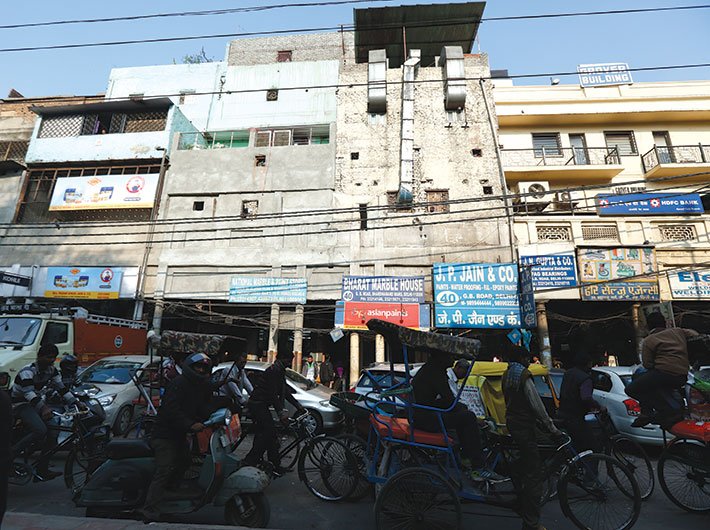The draft bill is full of flaws. Strengthen it before introducing it in parliament
In India, till recently, the complex crime of trafficking was addressed through multiple laws. For example, while the Immoral Traffic (Prevention) Act, 1956 (ITPA) sought to punish traffickers for selling women into sex work, the Child Labour (Prohibition and Regulation) Act, 1986 sought to control trafficking for child labour and the Indian Penal Code (IPC) prescribed penalties for crimes such as kidnapping and selling of minors into prostitution. This resulted in fragmentation of the law enforcement efforts and lack of uniformity in penalties.
Although India became a signatory to the UN protocol to prevent, suppress and punish trafficking against persons and the UN convention against transnational organised crime in 2011, it was not till 2013 that the IPC was amended to define ‘trafficking’ in a somewhat more comprehensive manner. However, since the legal changes in the criminal laws came about in the aftermath of the Nirbhaya rape case, the focus was on sexual assault against women.
‘Human trafficking’ came into focus again recently when the supreme court (SC) set a deadline of December 1, 2016 for the government to set up the organised crimes investigating agency for probing human trafficking cases. This ruling was the result of a public interest litigation filed by Prajwala, an NGO working in the sector, in 2004. The SC asked the centre to complete within six months the consultation process for bringing in a comprehensive law for the prevention of trafficking, and rescue and rehabilitation of victims of trafficking in December 2015.
Similar recommendations were made by the Justice Verma committee (set up to recommend changes in rape laws after the Nirbhaya case). It stated that the ITPA did not define trafficking comprehensively since it only criminalised trafficking for prostitution and recommended that (a) the definition of trafficking given in the Palermo Protocol of 2000 be adopted; (b) employment of trafficked person be criminalised; (c) use of threat, force or inducement to traffic people be criminalised; and (d) a specialised agency and special courts be created to investigate, prosecute and hear cases of trafficking.
What the draft bill says
The draft bill proposes to create an infrastructure for the rehabilitation of victims of trafficking. The infrastructure includes establishment of district and state level anti-trafficking committees and a central anti-trafficking advisory board to oversee the implementation of the Act. The bill then lays down the procedure for dealing with a victim of trafficking. It says that the victim shall be produced before the member secretary, district anti-trafficking committee.
For rehabilitation of victims, the bill mandates that the appropriate government maintain protection homes and special homes either directly or through voluntary organisations. These protection homes are required to provide for shelter, food, clothing, counseling, and medical care to the trafficked victims. The special homes are mandated to provide long-term institutional support to the victims. The bill requires every placement agency (which seeks to provide jobs to trafficked victims) to be registered as per the requirement of the law and shall be penalised for non-compliance. It also provides for setting up a special agency to investigate offences related to this bill and special courts for dealing with these cases. The bill lays down that the state government shall designate a police officer of the rank of a gazetted officer to be an investigation officer for investigating offences under this law and under Sections 370 to 373 of the IPC, 1860. The bill prescribes penalties for offences such as non-registration of homes, disclosure of identity of victims by the media, the use of narcotic drugs, psychotropic substances and alcohol for trafficking and the use of chemical substances or hormones to exploit women and girls. An anti-trafficking fund shall take care of the expenses of rehabilitation and welfare of the victims.
Why is it flawed?
It is not clear why the title of the bill is “trafficking of persons” when all international conventions say “trafficking in persons”. At first glance, the legal implication is not clear but it is possible that “trafficking in persons” would include a broader range of activities that fall within its purview than “trafficking of persons” which would just mean physically moving a person from one place to another.
Although the title of the bill is ‘Trafficking of Persons (Prevention, Protection and Rehabilitation) Bill, 2016’, it mostly deals with the rehabilitation of victims of human trafficking. There is no mention of anything related to prevention of trafficking and only a few provisions related to protection of victims (protection of identity of victims and the use of drugs, alcohol and hormones).
The bill, for example, does not specifically provide for the protection of victims from abuse by caregivers in protection homes and special homes. It also does not include any awareness campaigns about the problem of trafficking among vulnerable groups.
The sketchy and sloppy drafting needs to be highlighted. Definitions of key terms such as trafficking, exploitation, rehabilitation, hormones and chemical substances are missing. It defines “victims” to include any person who has been trafficked but in the absence of a definition of trafficking it is not clear who will be deemed as “victim”. Without clear definitions, these terms would be open to interpretation by law enforcement agencies and judiciary, leading to confusion in implementation of the law.
The bill establishes a special agency to investigate offences related to the Act but does not provide any other details. Since this special agency is tasked with investigating offences of the bill, the effectiveness of the bill would be dependent on the nature of the agency. The lack of details about its structure, composition, powers and function of the agency gives an idea about the lack of seriousness of the government in ensuring the rehabilitation of trafficked victims.
The bill does not lay down a clear procedure to follow for rescue and rehabilitation of victims. It is left to state governments, which means there is likely to be no change from what is currently being done.
The purpose of the fund is not clear given that there is no provision for compensating victims. Also, there is no mandatory requirement for government to allocate money for the fund in their budgets. Most funds of this nature remain on paper. For example, the Nirbhaya fund and the national fund for control of drug abuse were created under the Narcotic Drugs and Psychotropic Substances Act, 1985.
What needs to be done
There is little reliable data on the extent of trafficking in India, but according to the Trafficking in Persons Report of the US State Department, 20 to 65 million Indians have fallen prey to trafficking. Clearly, it is a significant problem. Therefore the Indian government needs to invest in a robust data collection and maintenance system.
There needs to be heavy penalisation of the offence of human trafficking, including acts that promote trafficking.
It is important to provide for effective rehabilitation and reintegration of victims of trafficking. In cases where victims who are engaged in sex work wish to leave the profession, there should be measures for their healthcare, education and reintegration in society. In cases where the sex workers do not wish to leave the profession, they should not be criminalised, instead should be protected from routine harassment by police and others.
The bill should borrow from the UN Protocols provisions that are related to the protection of the rights of trafficked victims and ensure that they are followed properly.
The value of a democracy lies in how well it is able to protect the most marginalised and vulnerable of its citizens. Although we as a society failed them at the first instance, it is essential that we make amends by ensuring that they have a second chance. Therefore, this draft bill needs to be strengthened significantly before it is introduced in parliament.
Sanyal is a consultant with Kamonohashi Project (a Japan-based NGO on human trafficking).
(The story appears in the July 1-15, 2016 issue of Governance Now)



